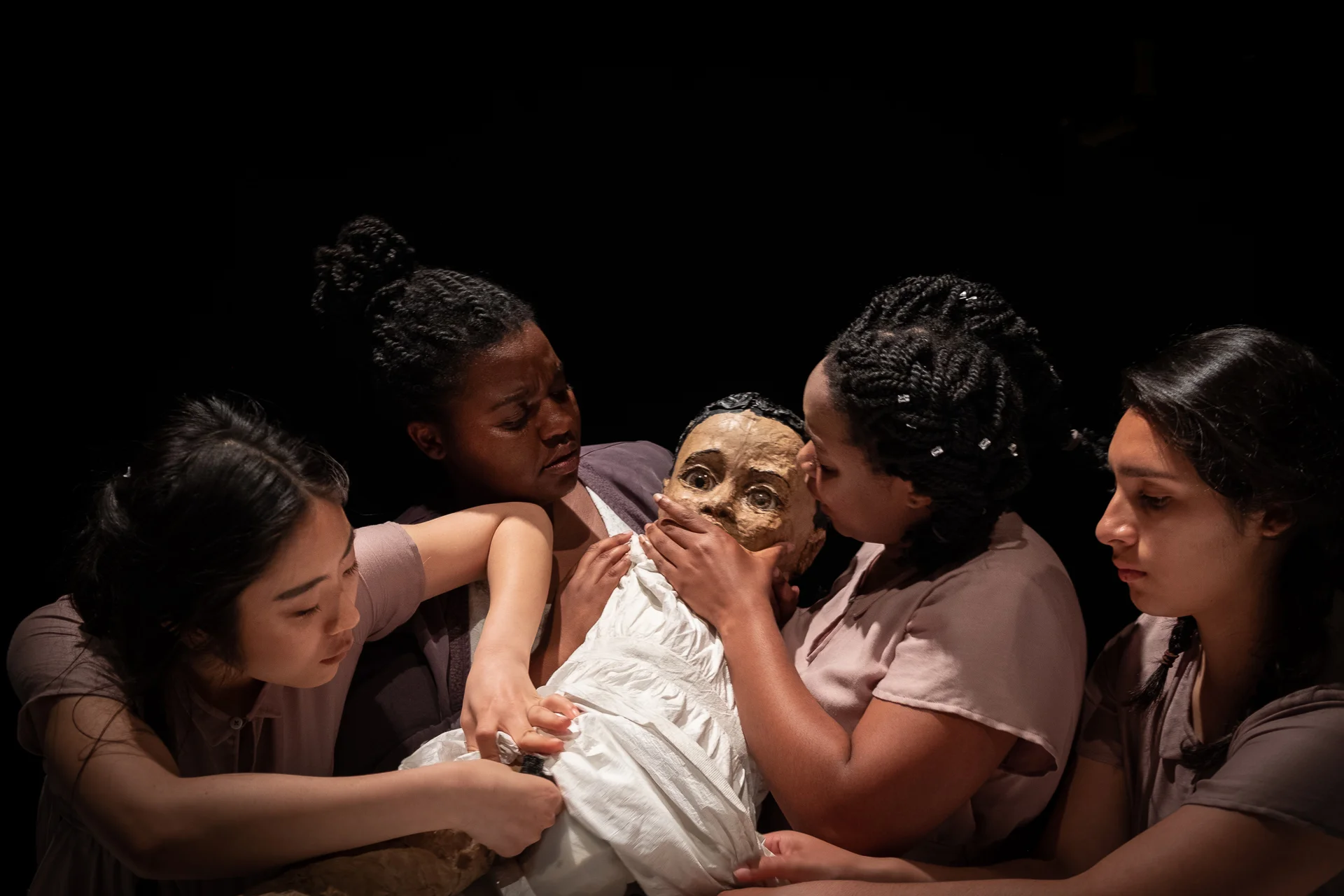
The Bluest Eye
Based on Nobel Laureate Toni Morrison’s 1970 book of the same title, The Bluest Eye brings the text into a contemporary context.
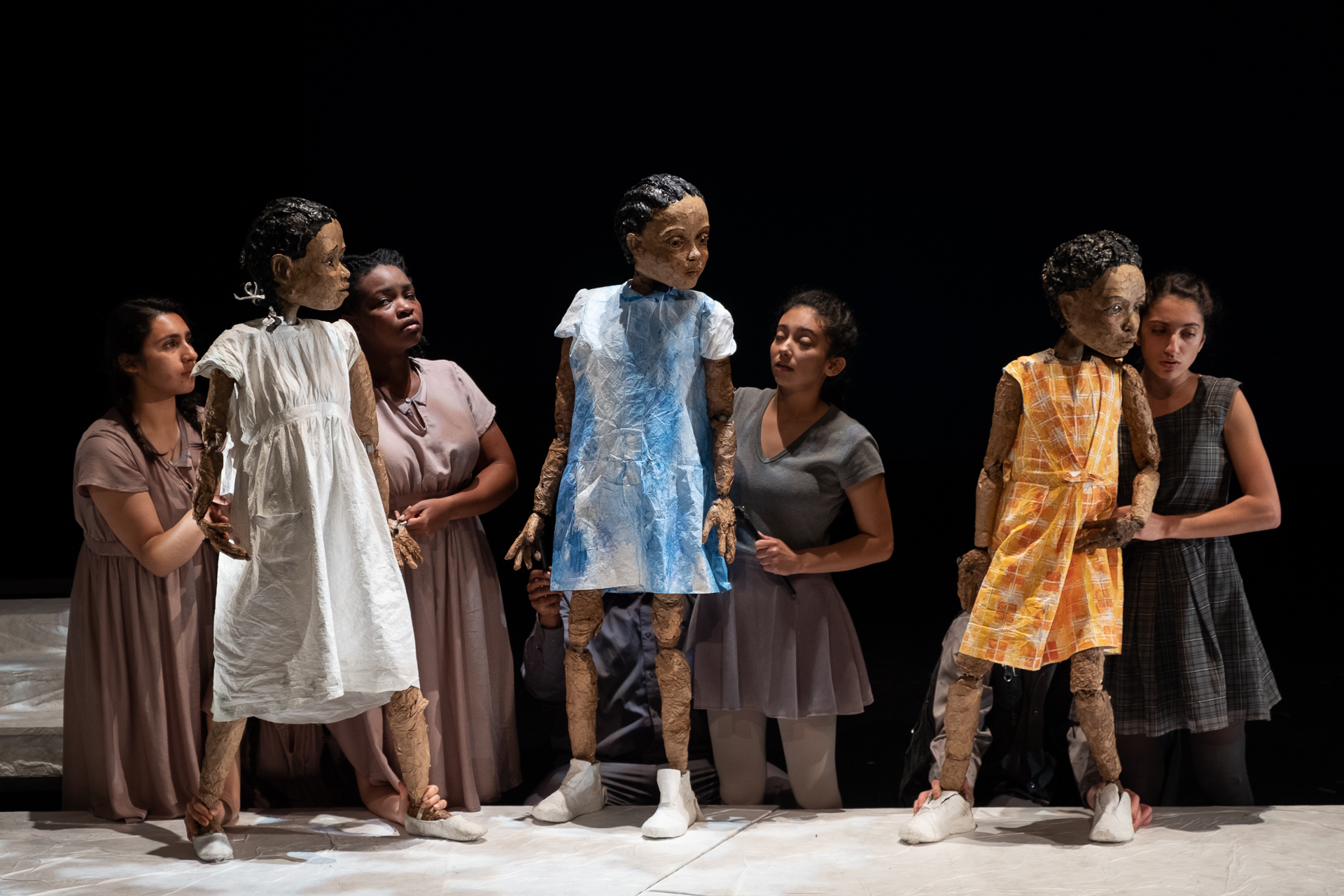
The Bluest Eye tells the story of Picola, a black girl caught in tragic circumstances. Her best friend narrates her own search for the source of responsibility and for an understanding of her own part in the story.
The production interrogates how identity is shaped, using a synthesis of puppets, puppeteers, and actors.
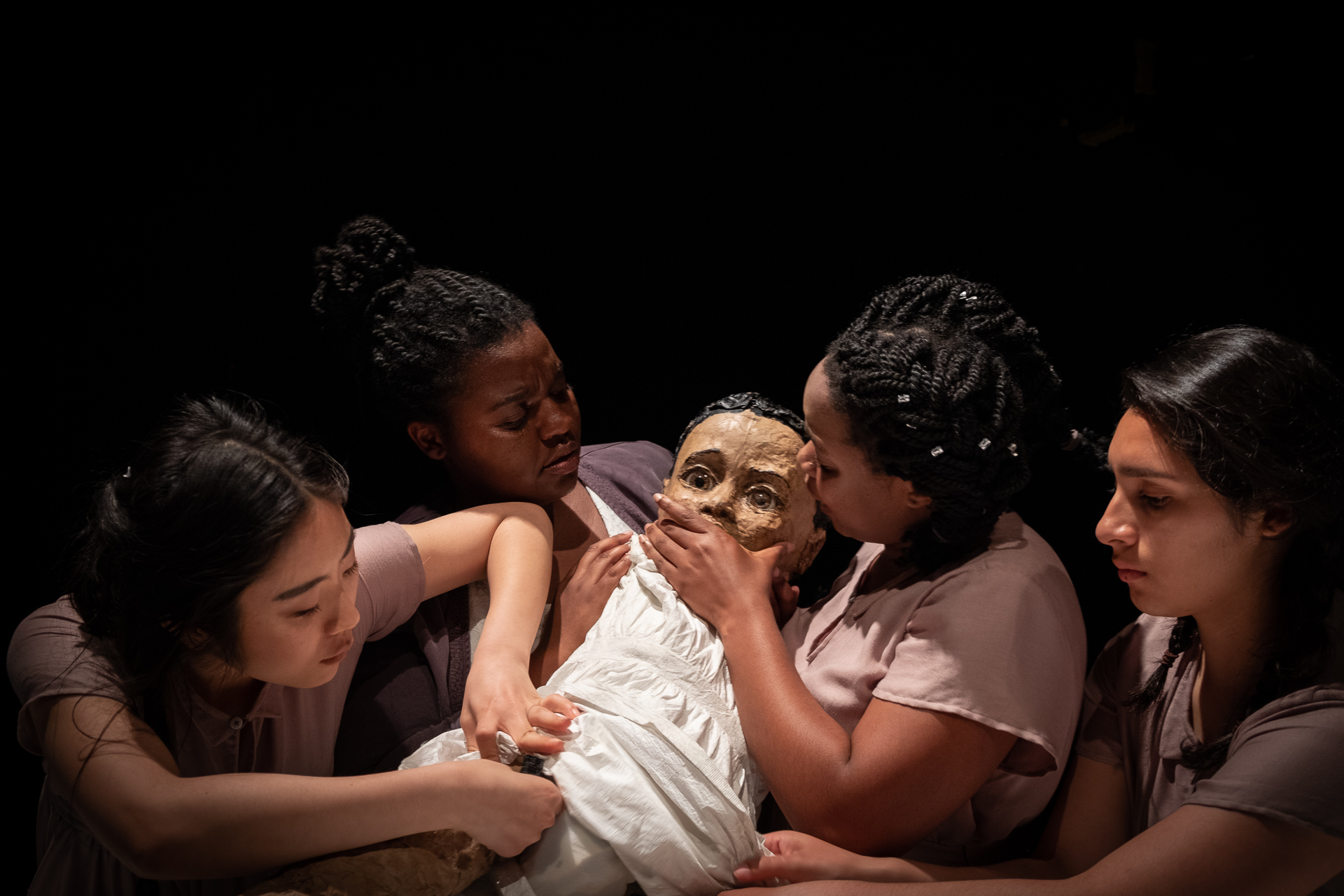
The puppetry highlights the formation and fragility of self. It forms a layer of meaning, literally building the self as it it is held and supported (or not supported) by a community at large.

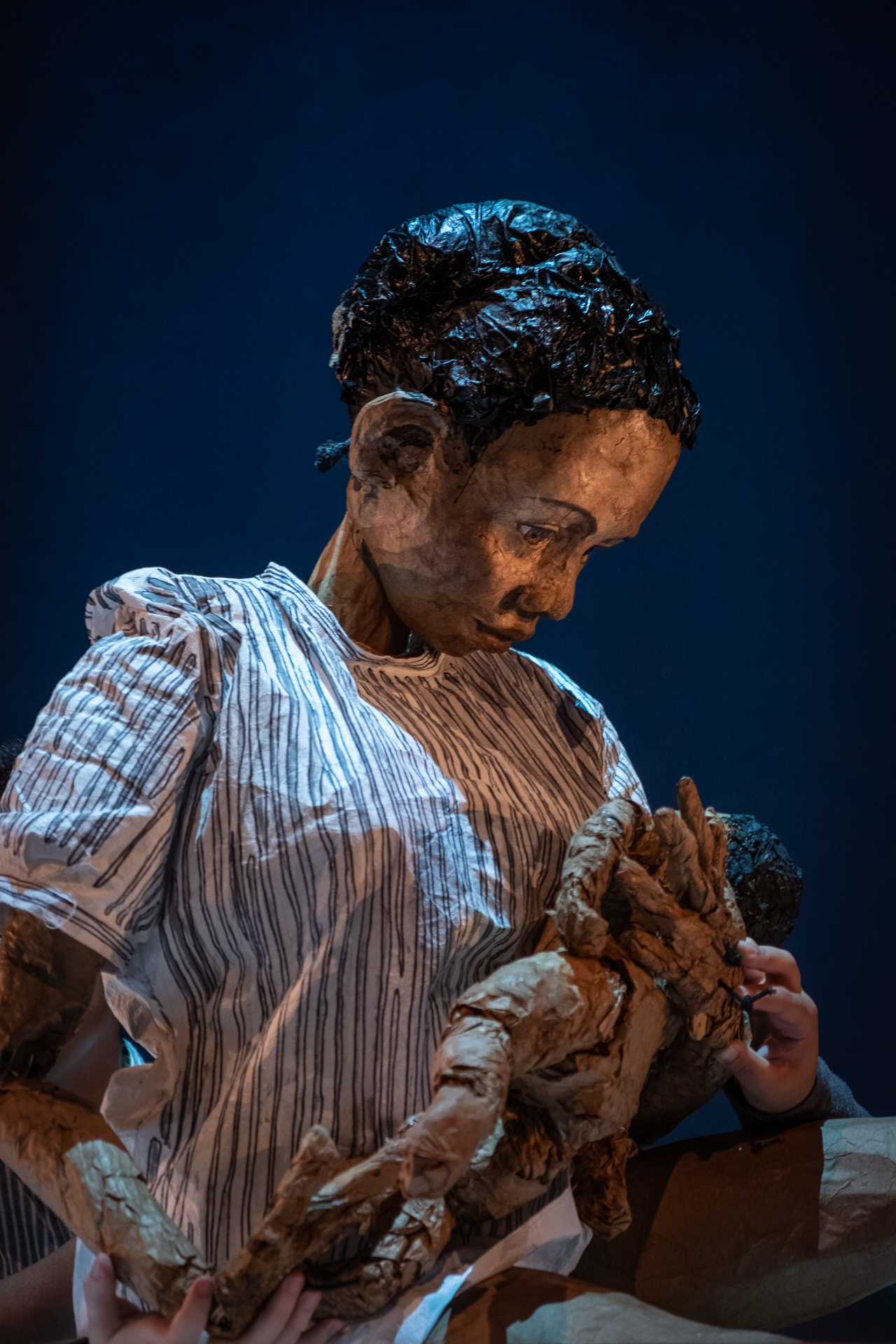
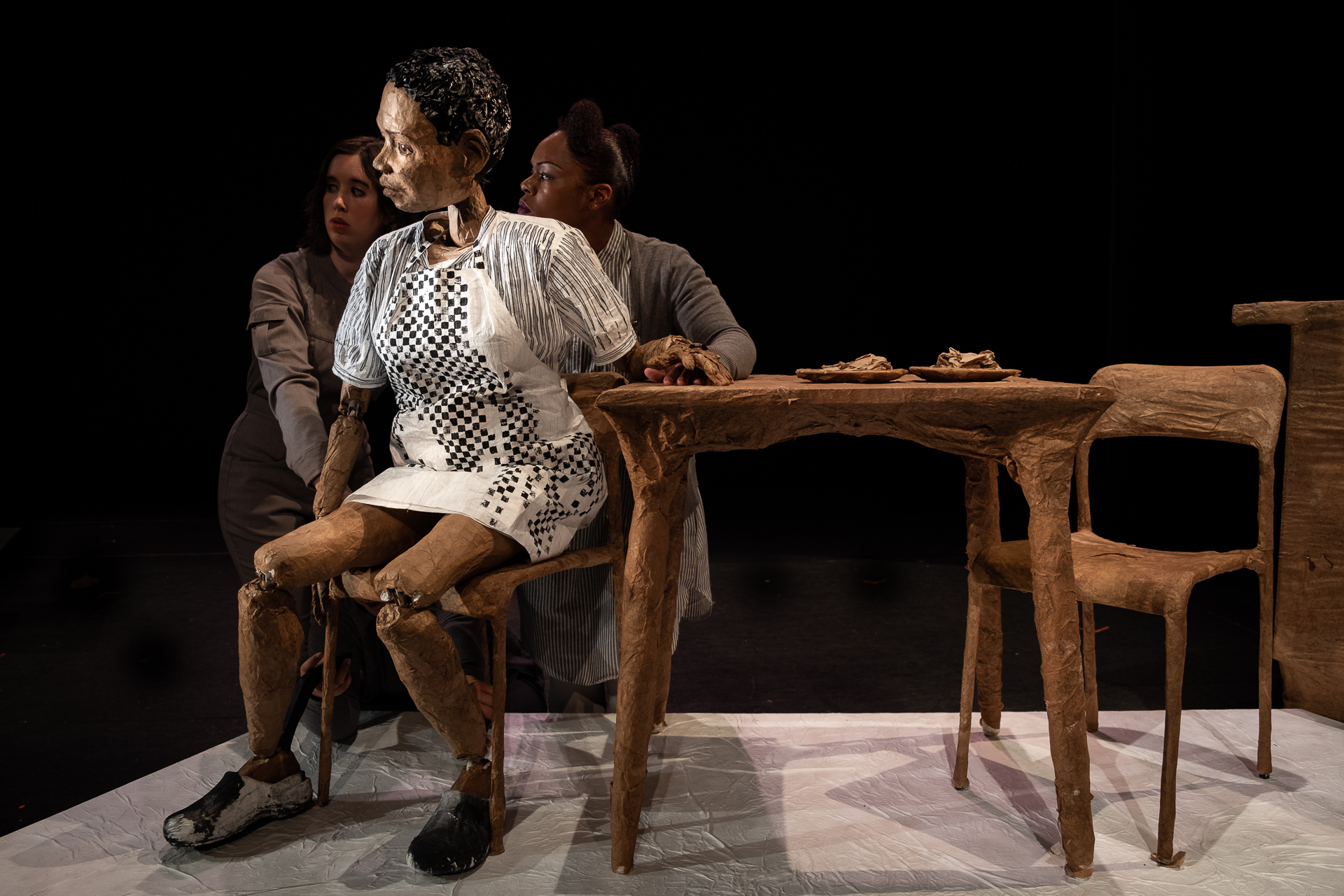
"This show is created to raise questions of how race, racism, poverty, and violence impact individuals and communities. The characters of the play are both heroic and deeply flawed, and they form part of vibrant and challenged communities. We don’t want our audience members to be satisfied with empathizing with the characters and communities. We want them to engage in an active conversation about the how we understand ourselves and each other today.” Margaret Laurena Kemp, Co-Director
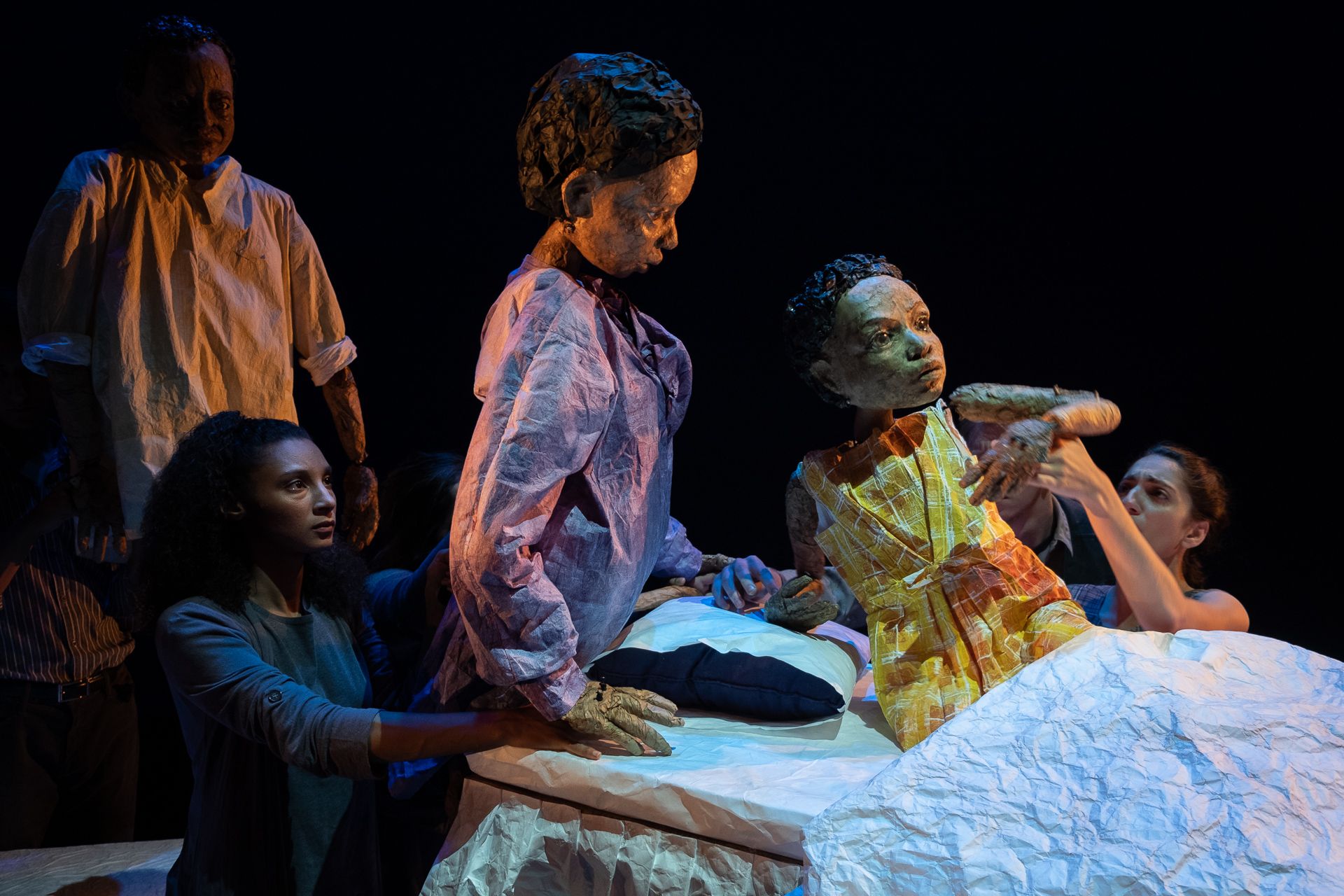
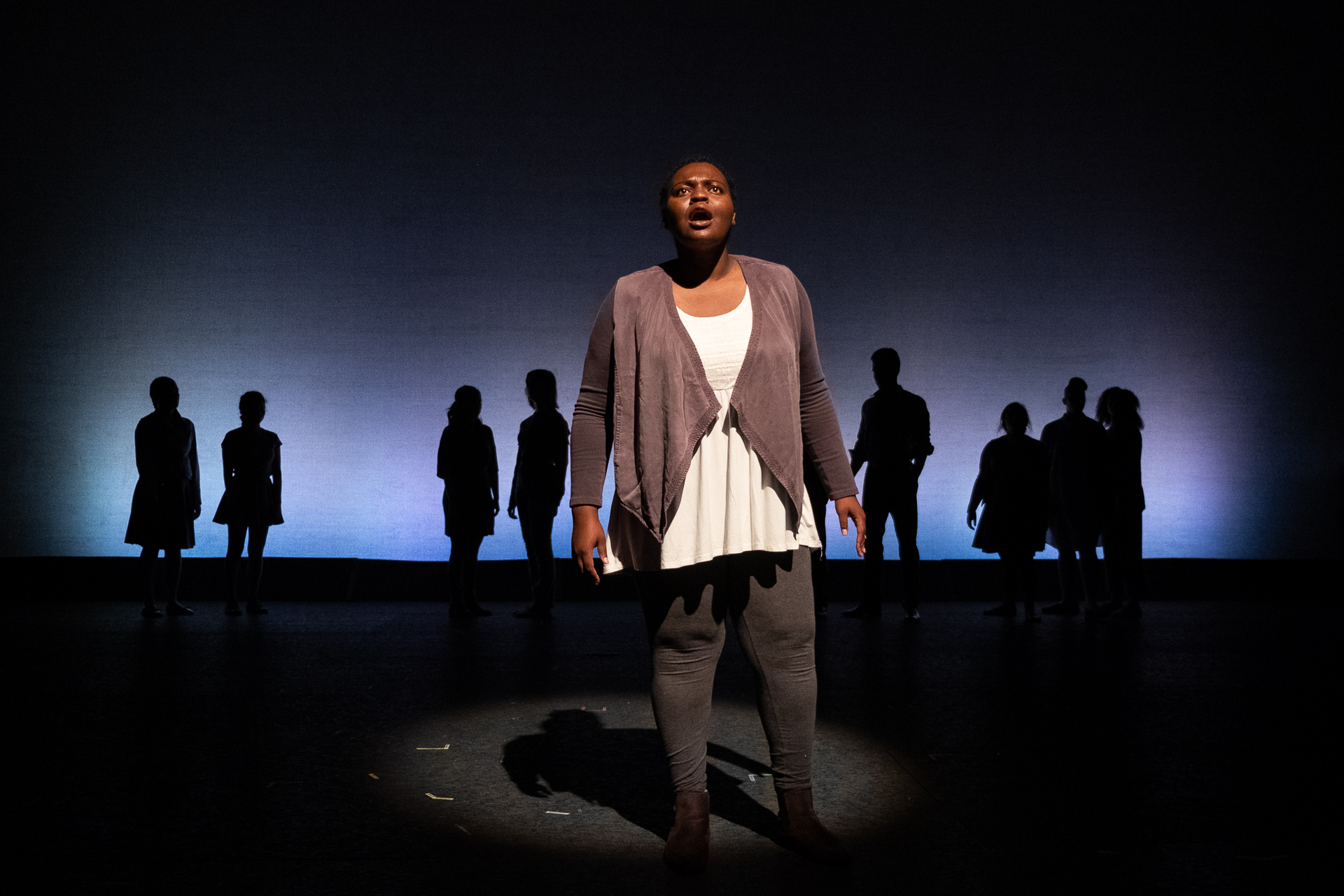
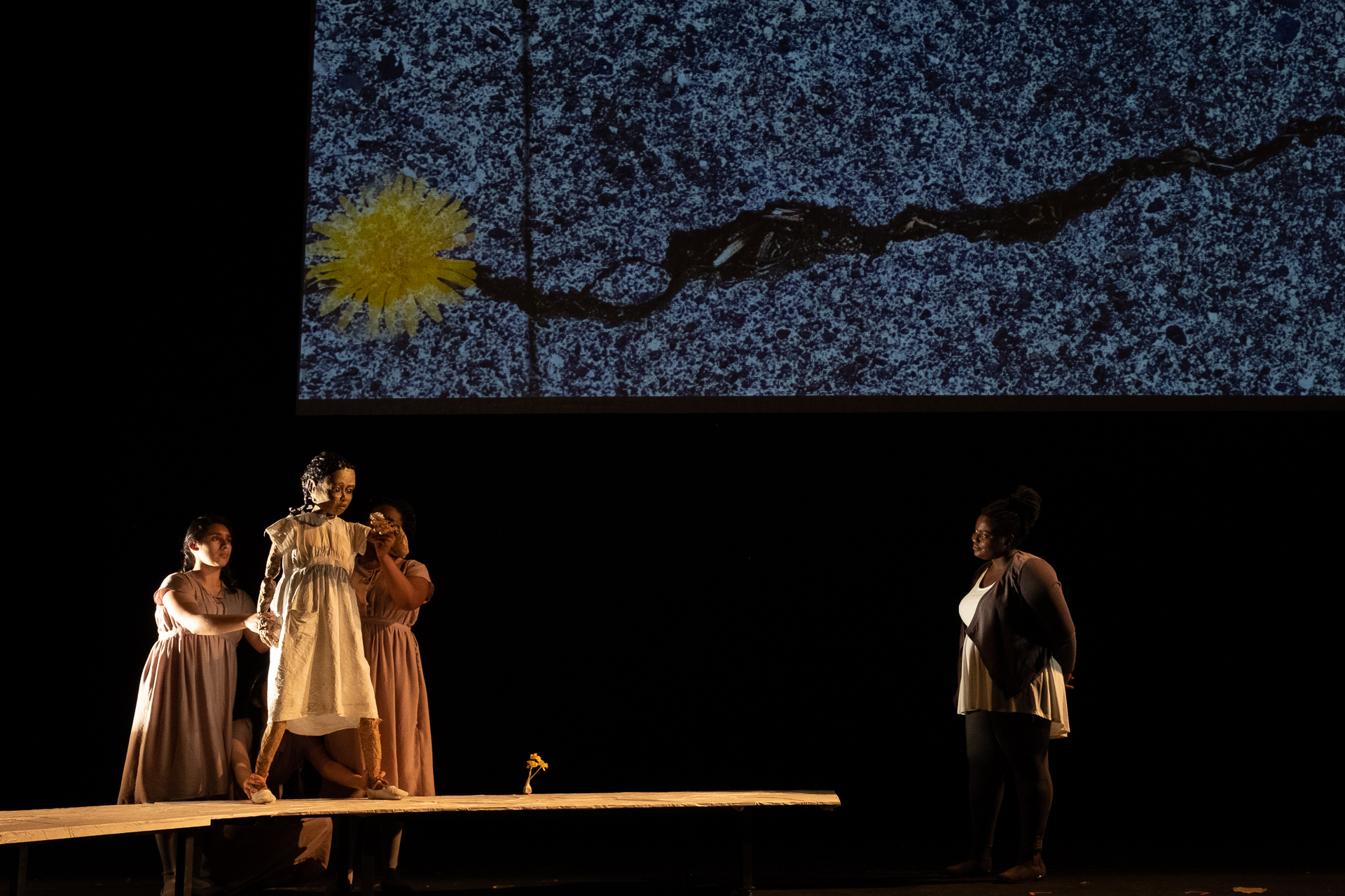
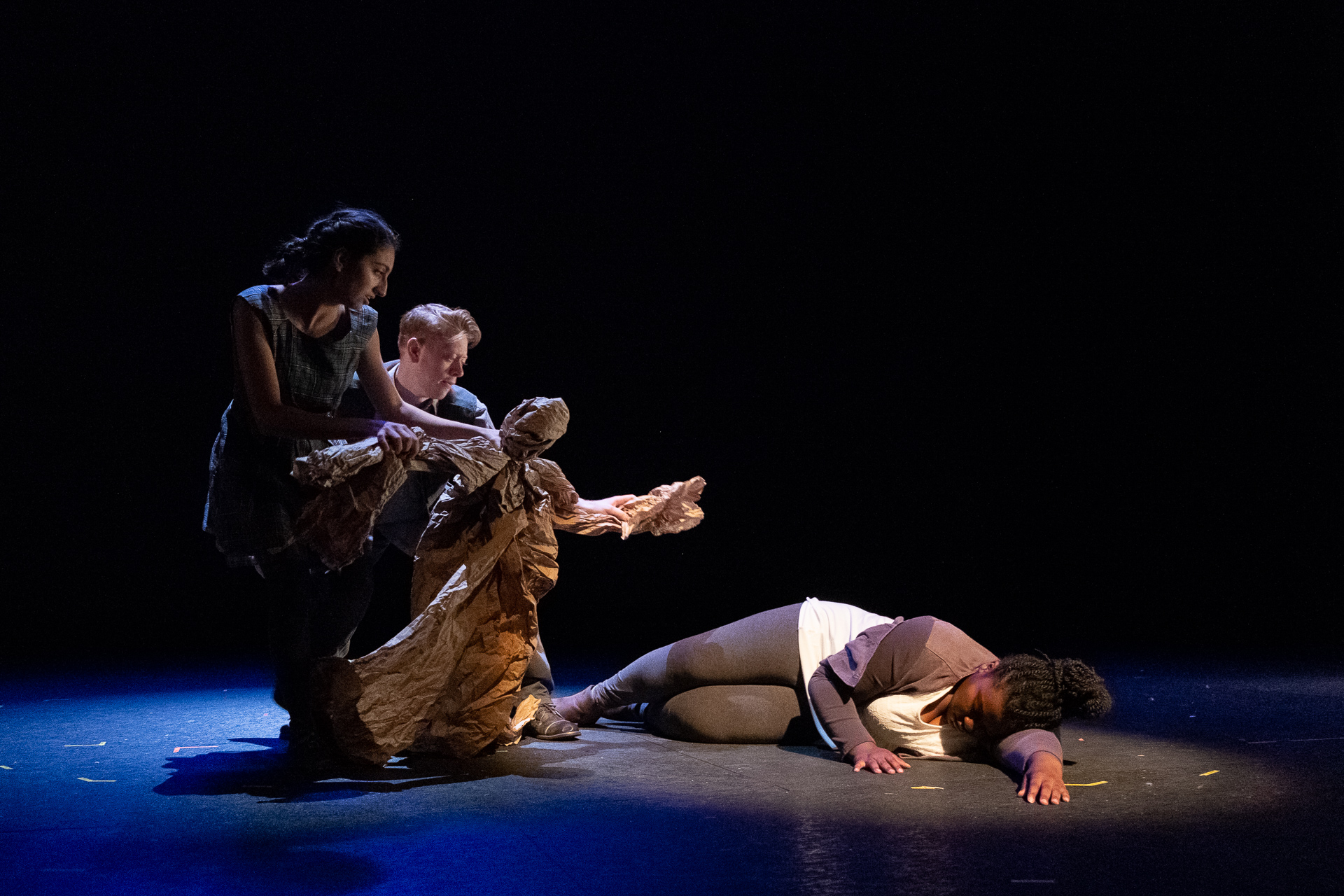
The compassion with which author Toni Morrison treats all the players in this drama is brought forth by the puppeteers who bring Claudia’s memories to life.
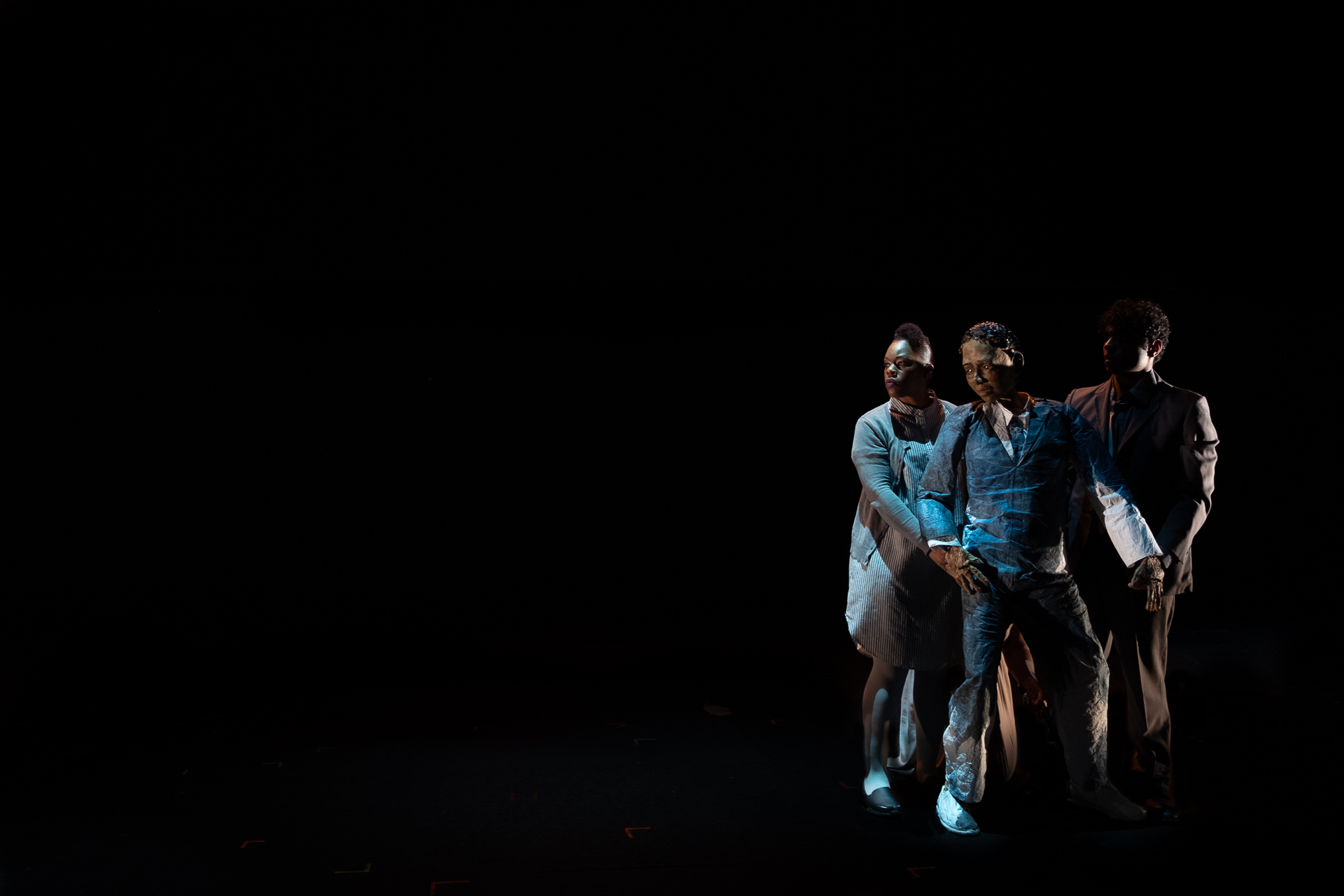
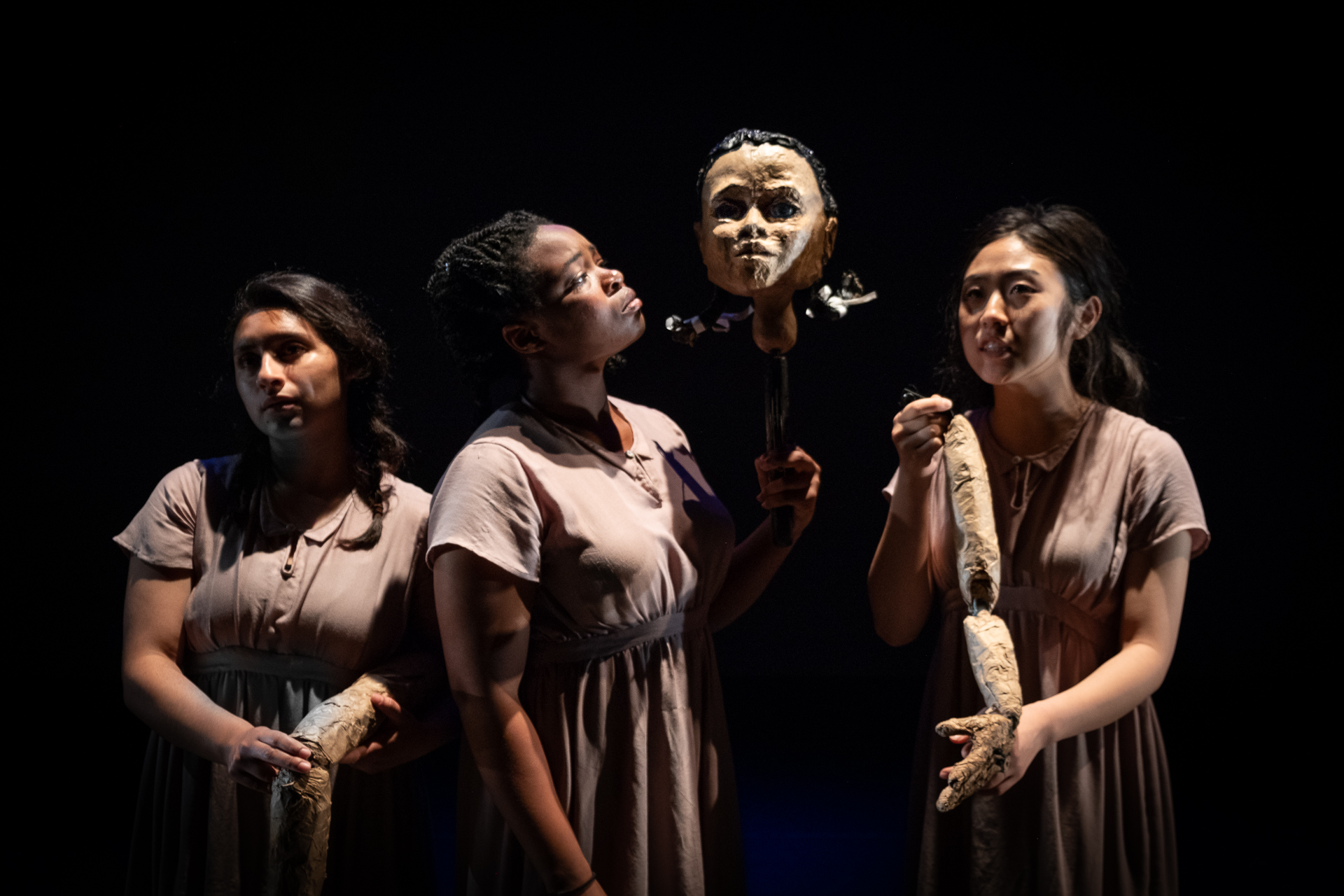
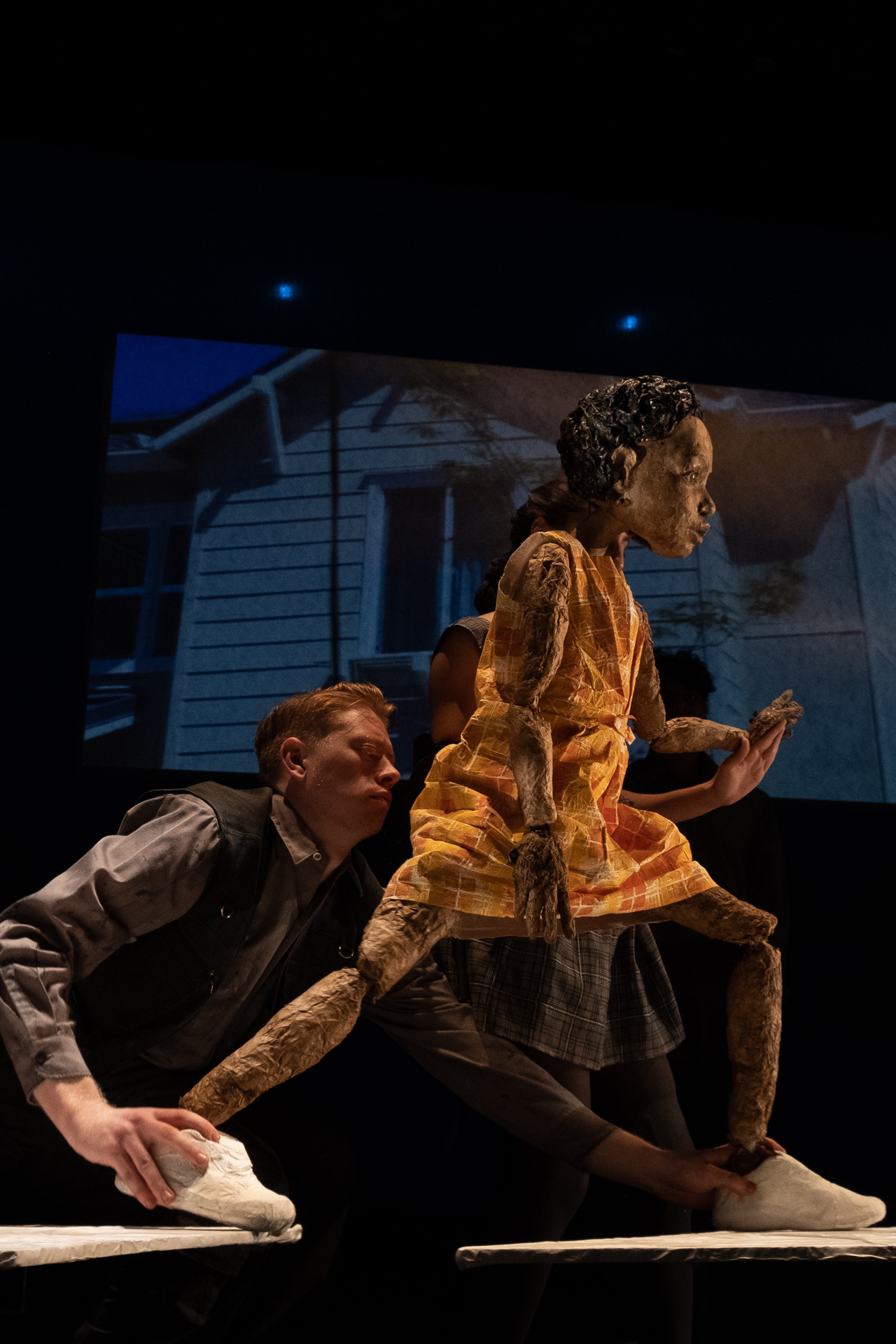
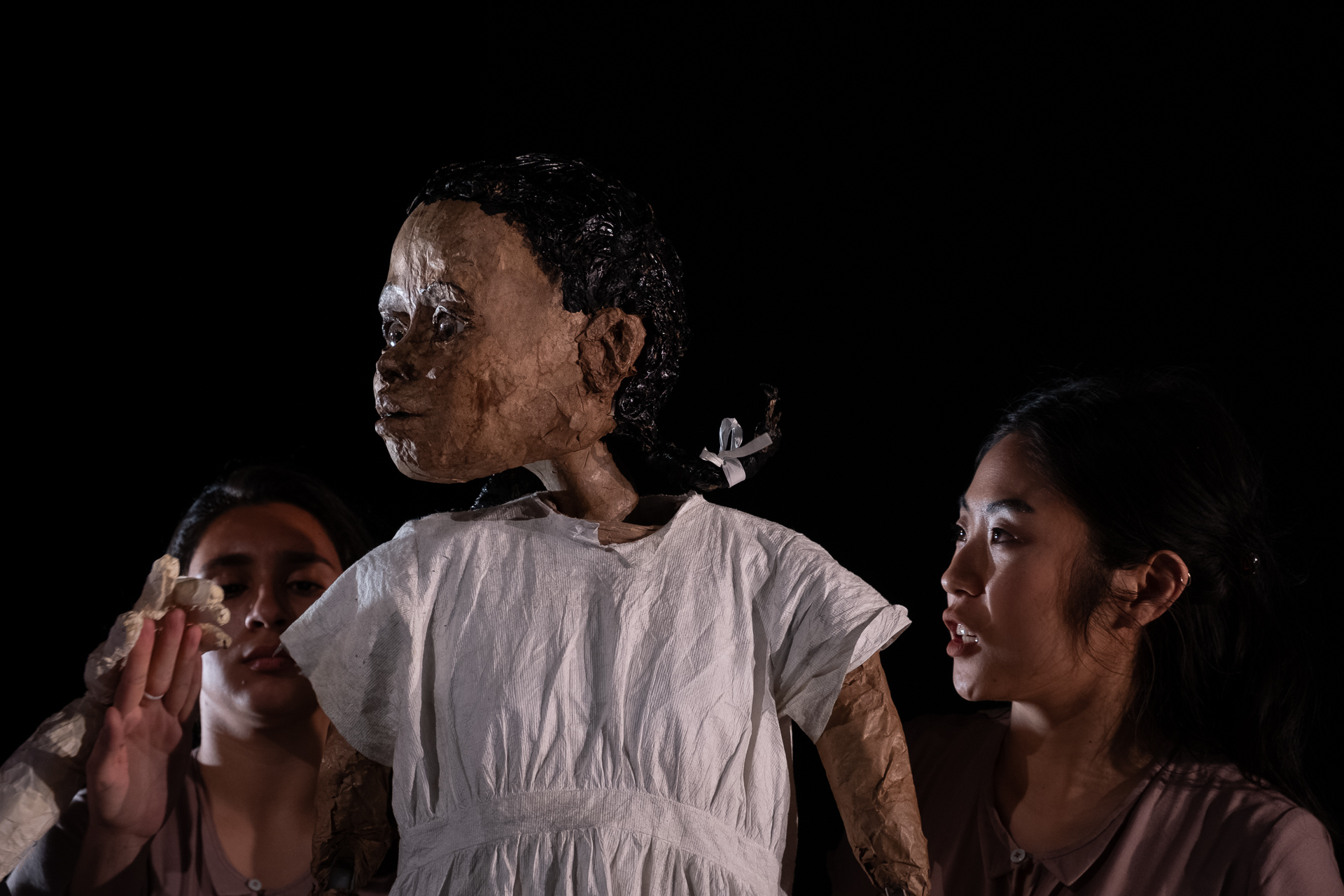
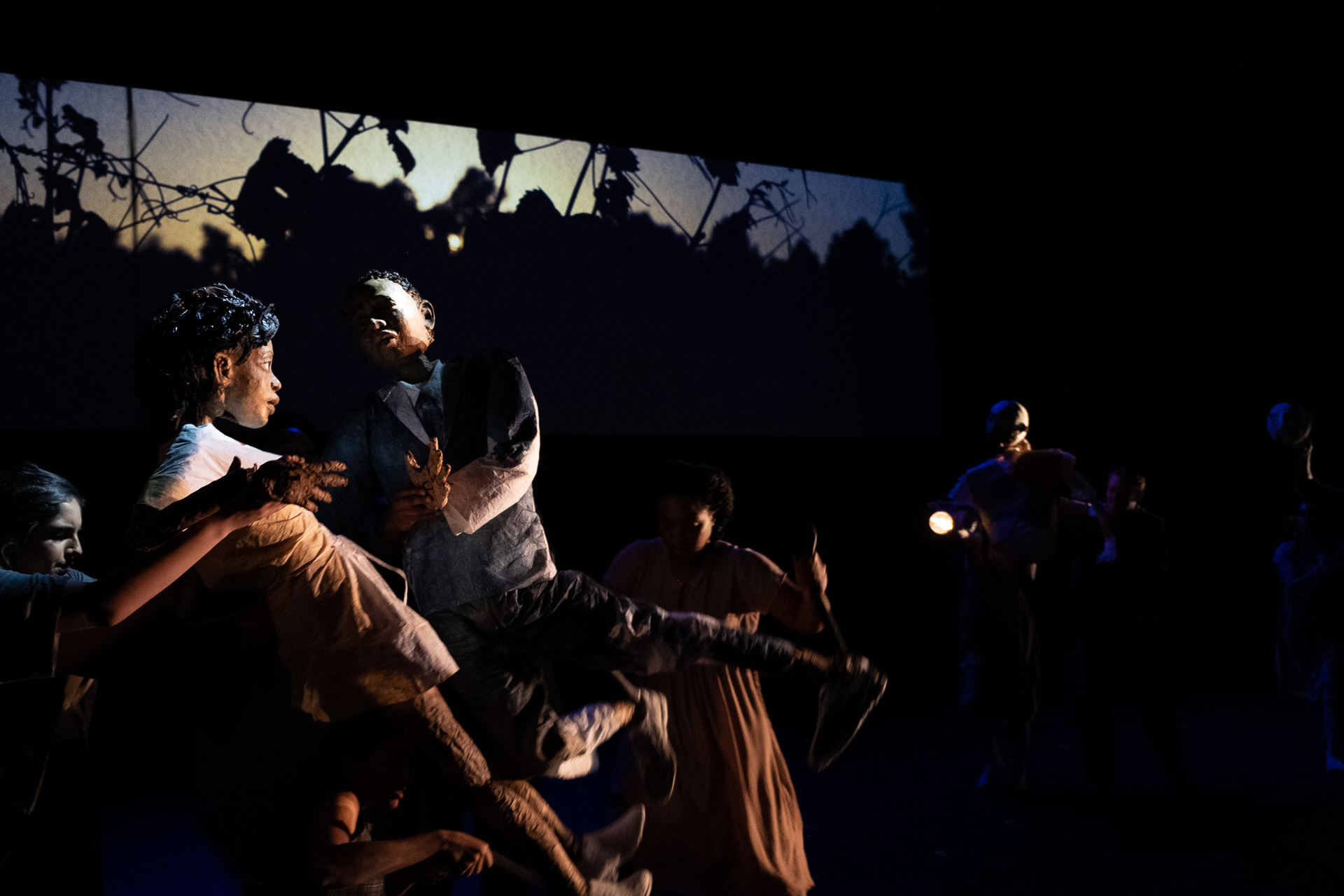
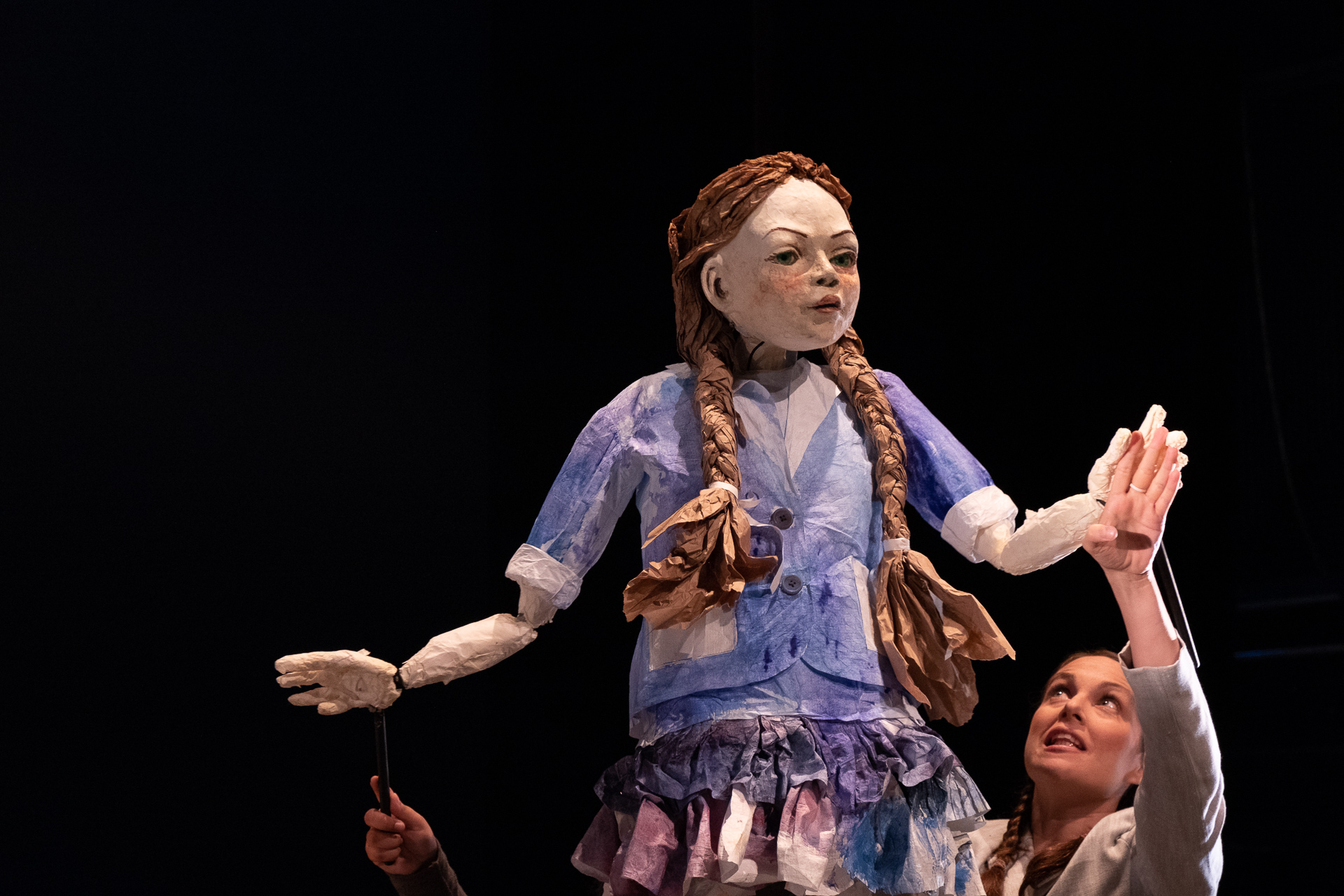
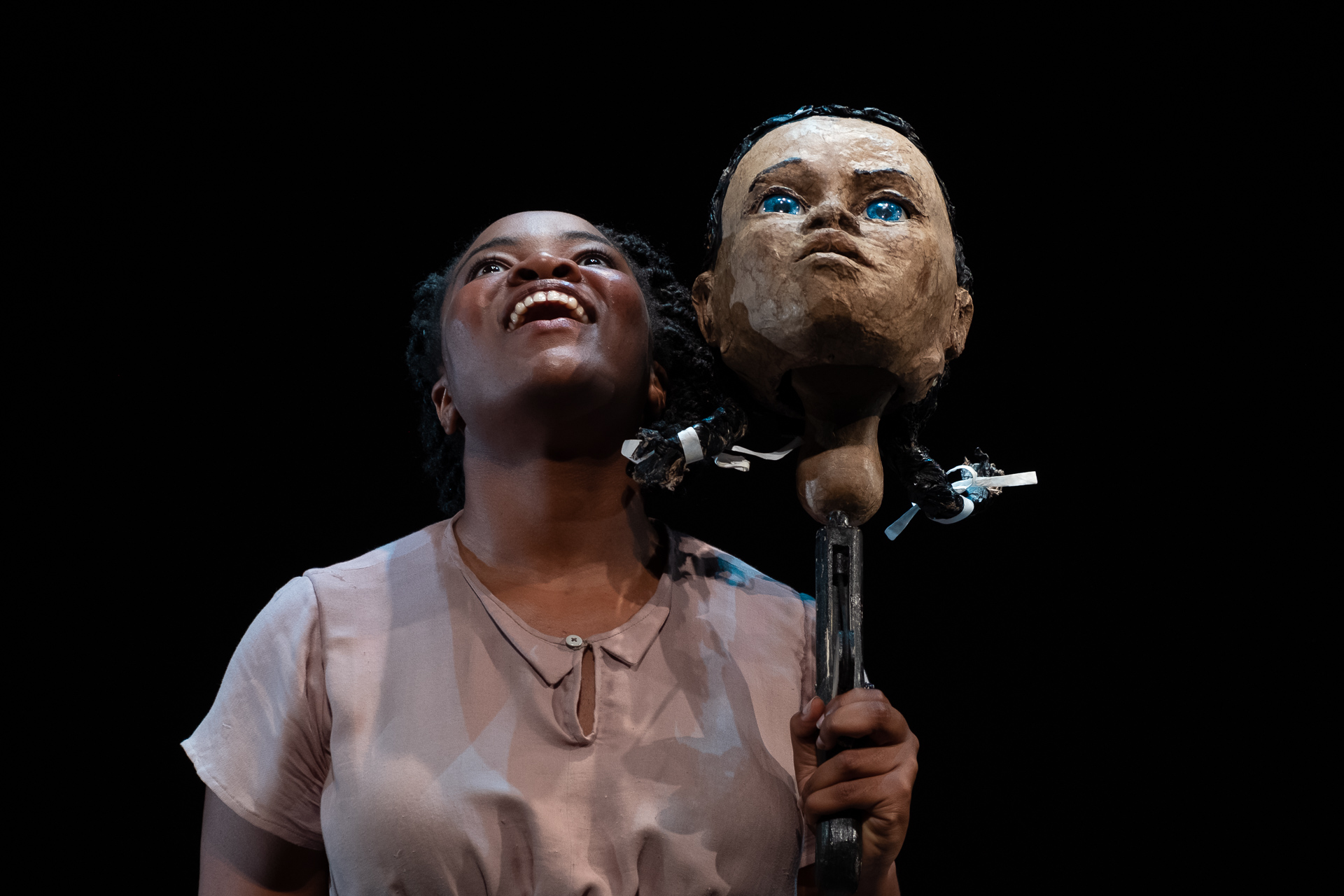
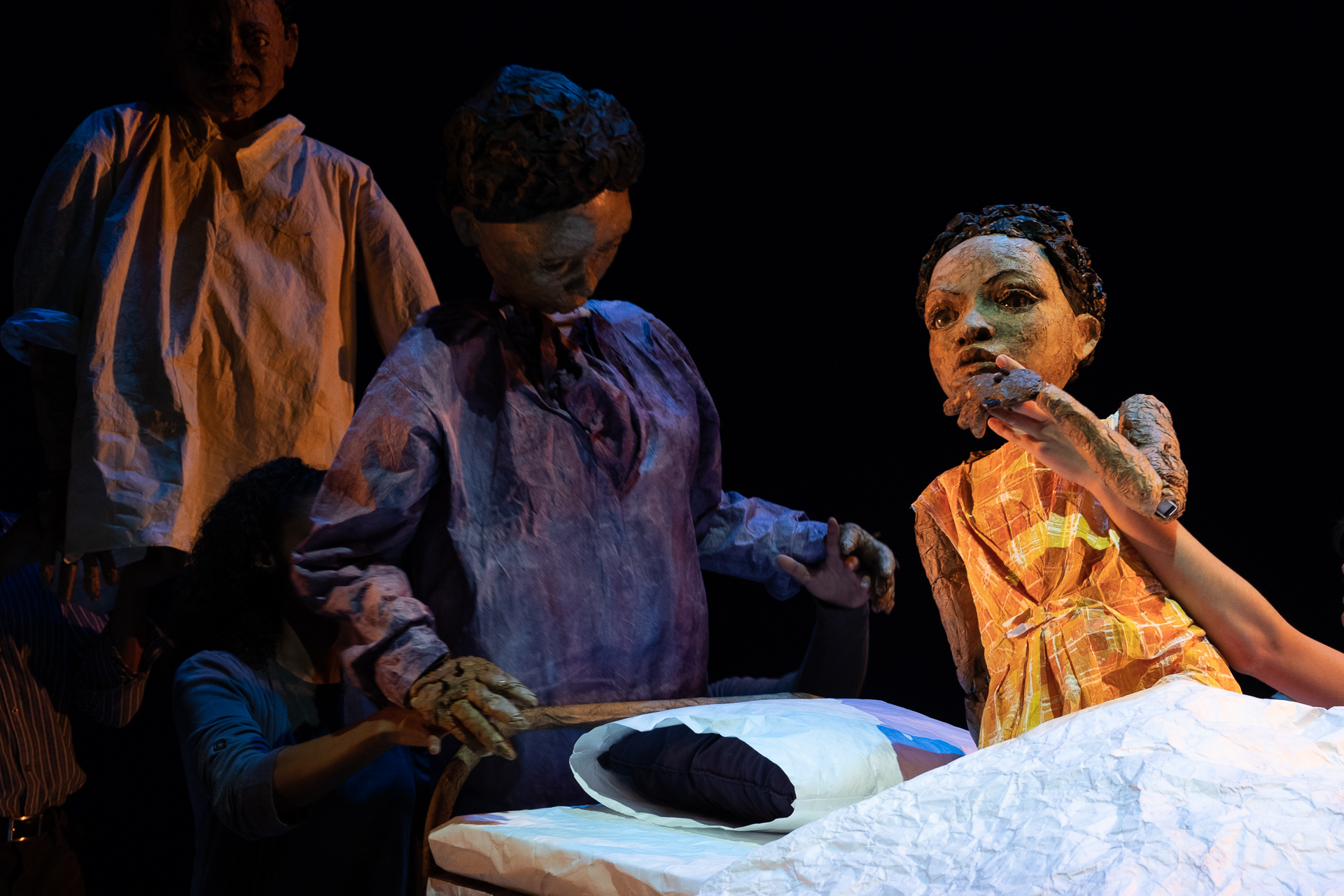
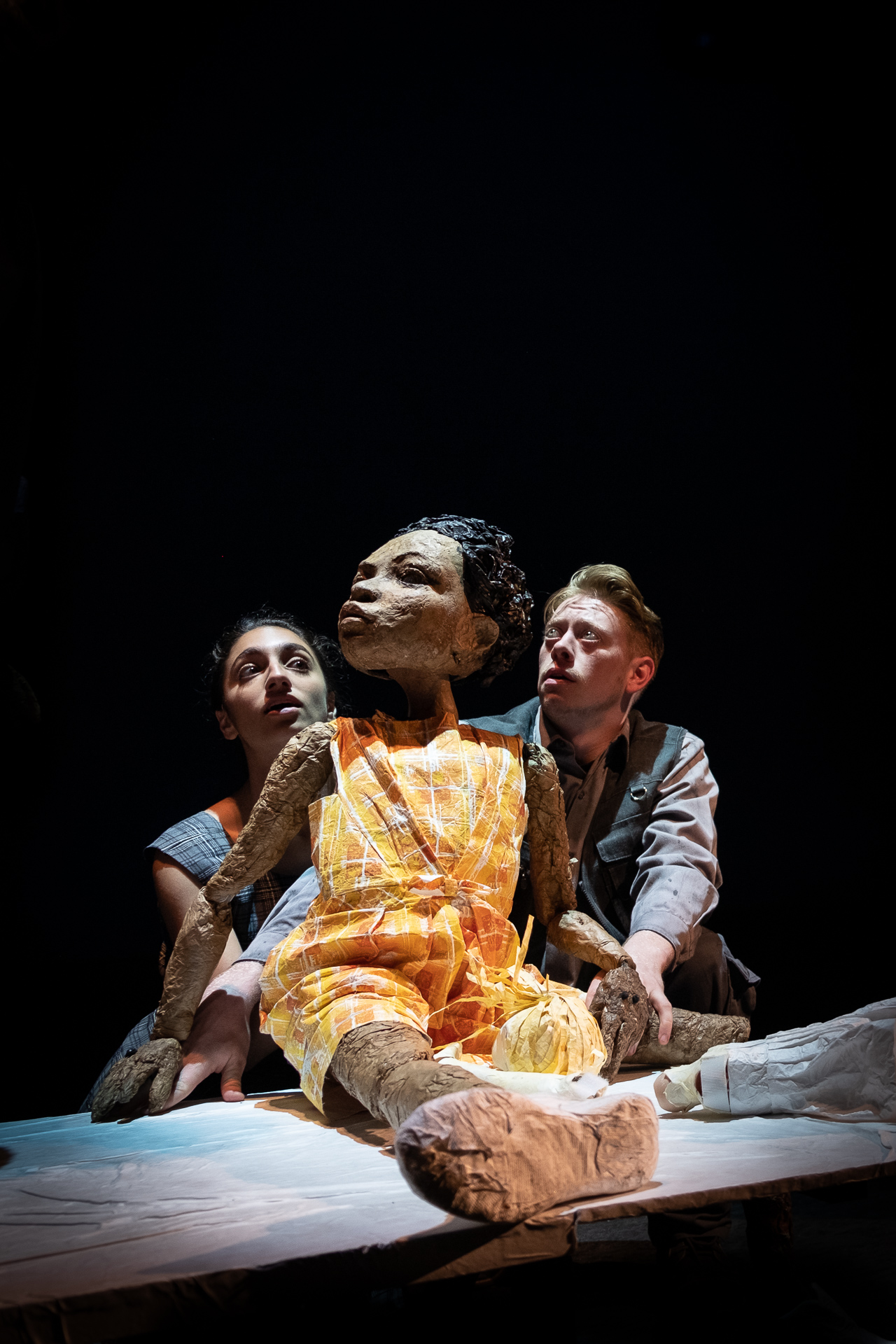
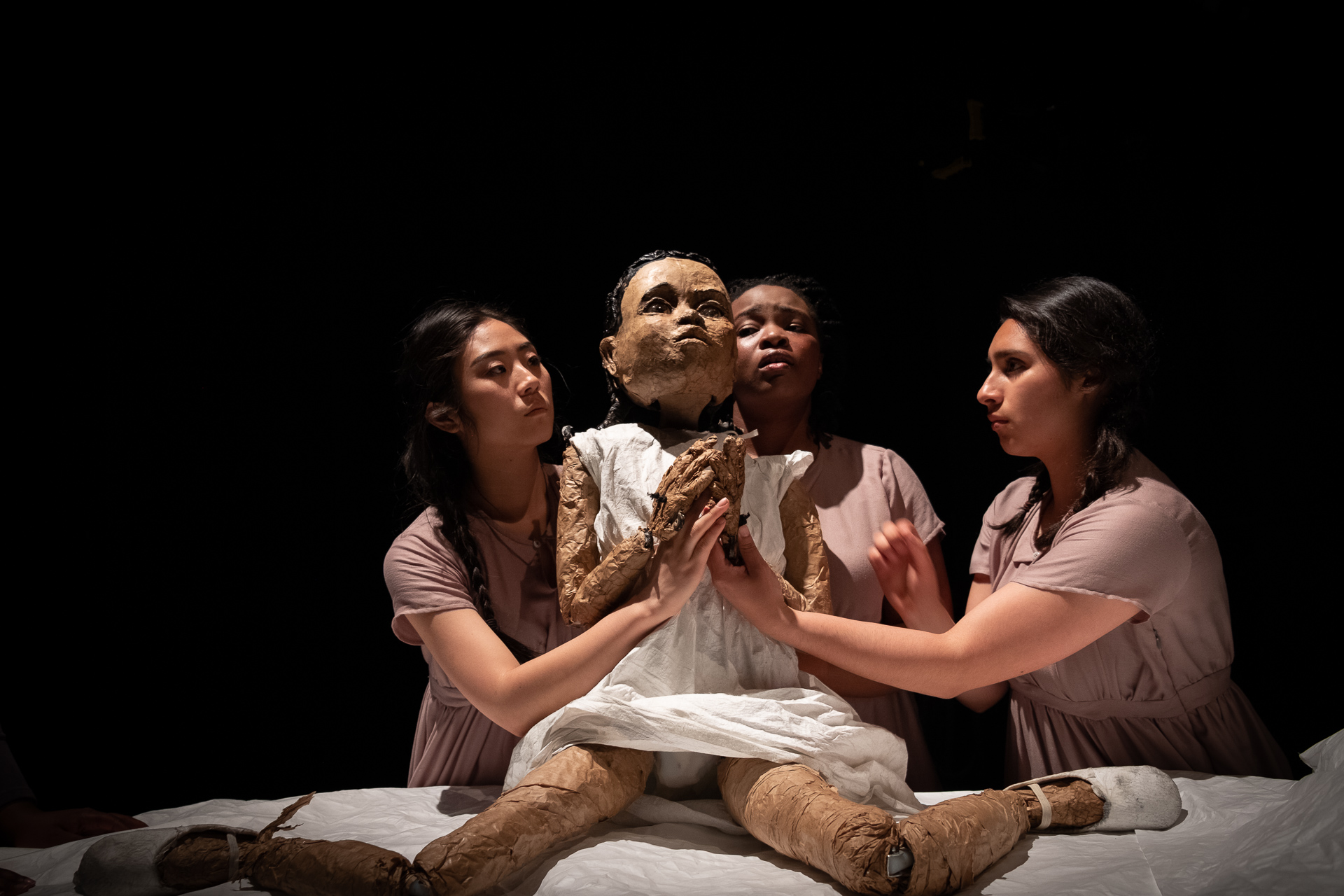
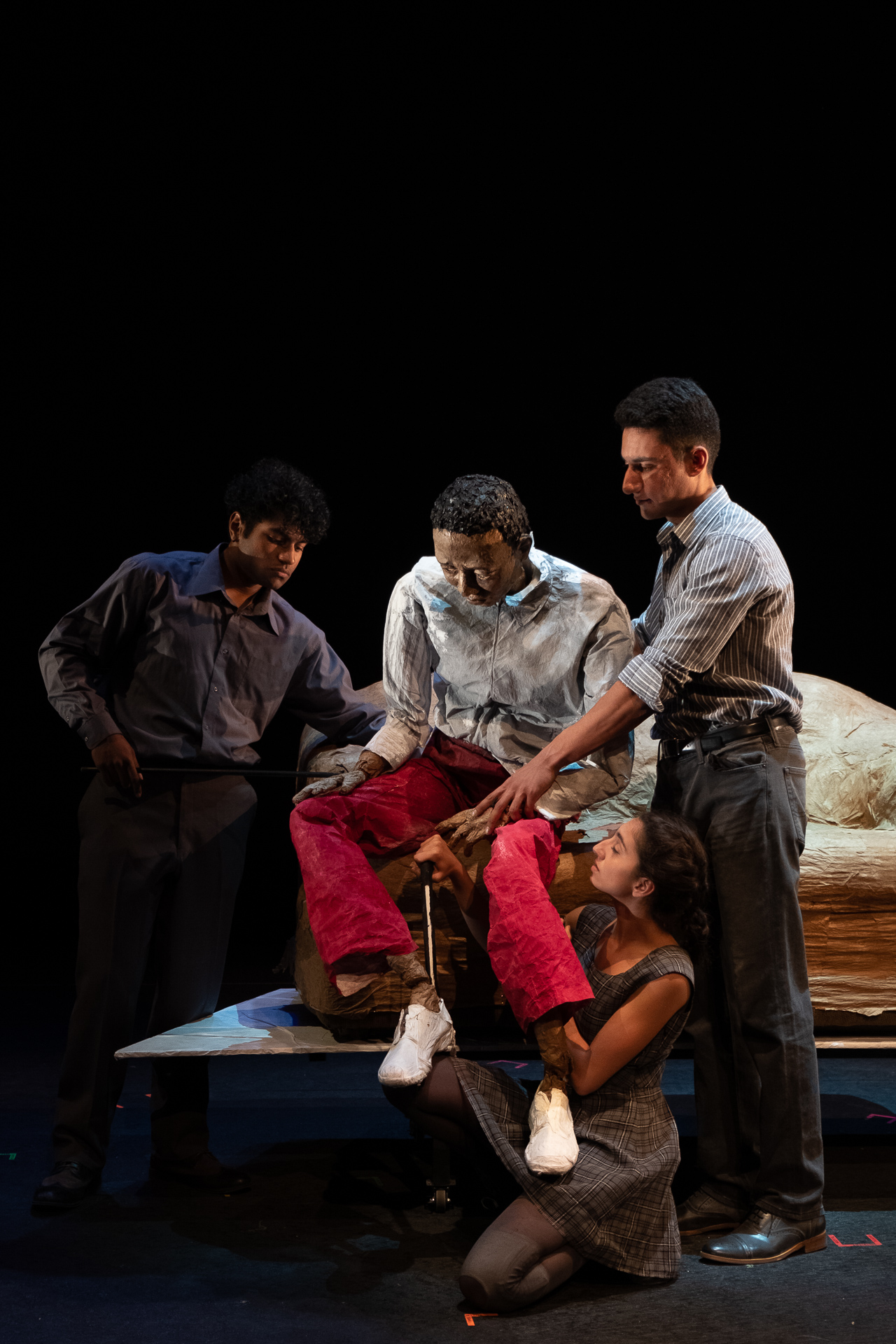
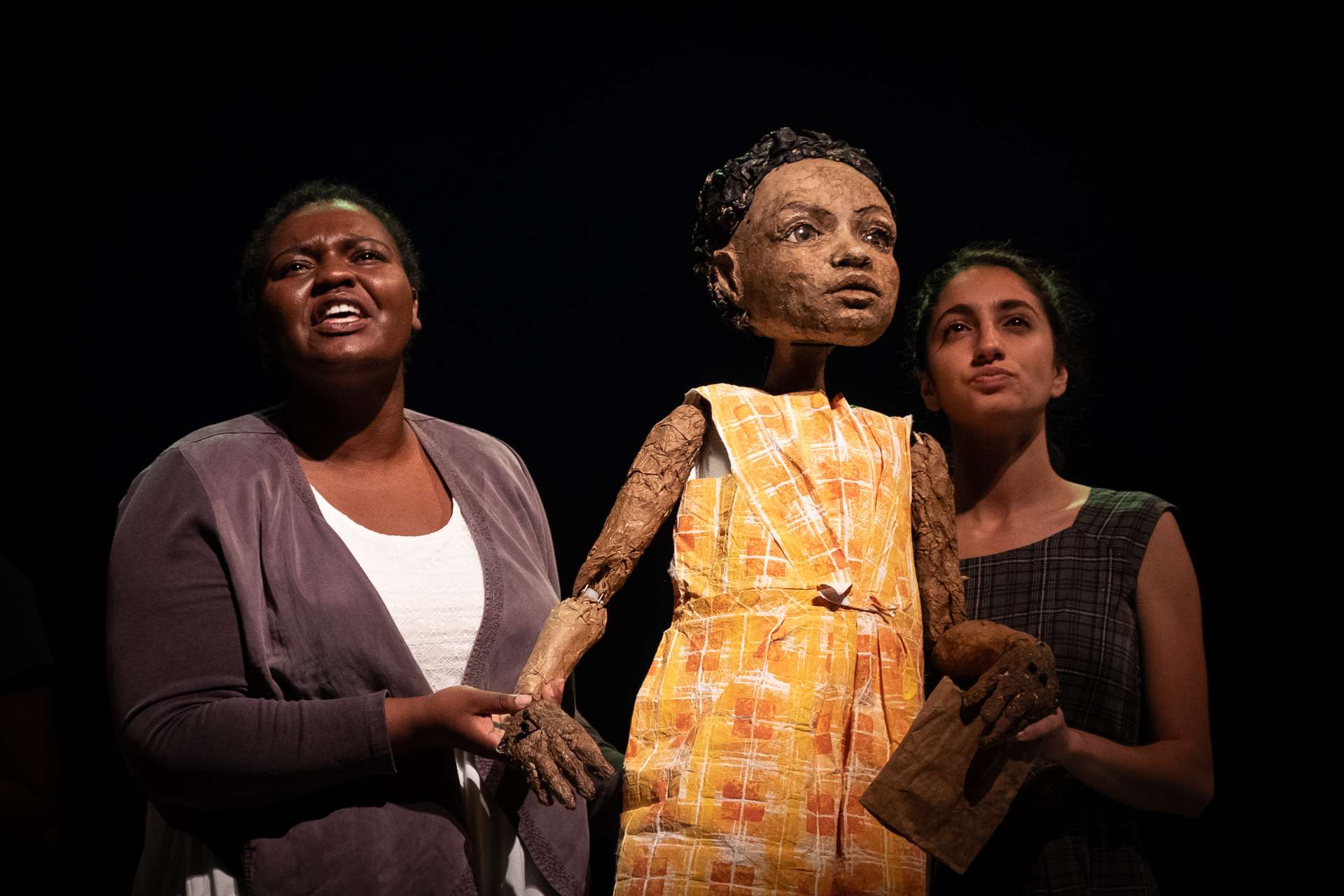
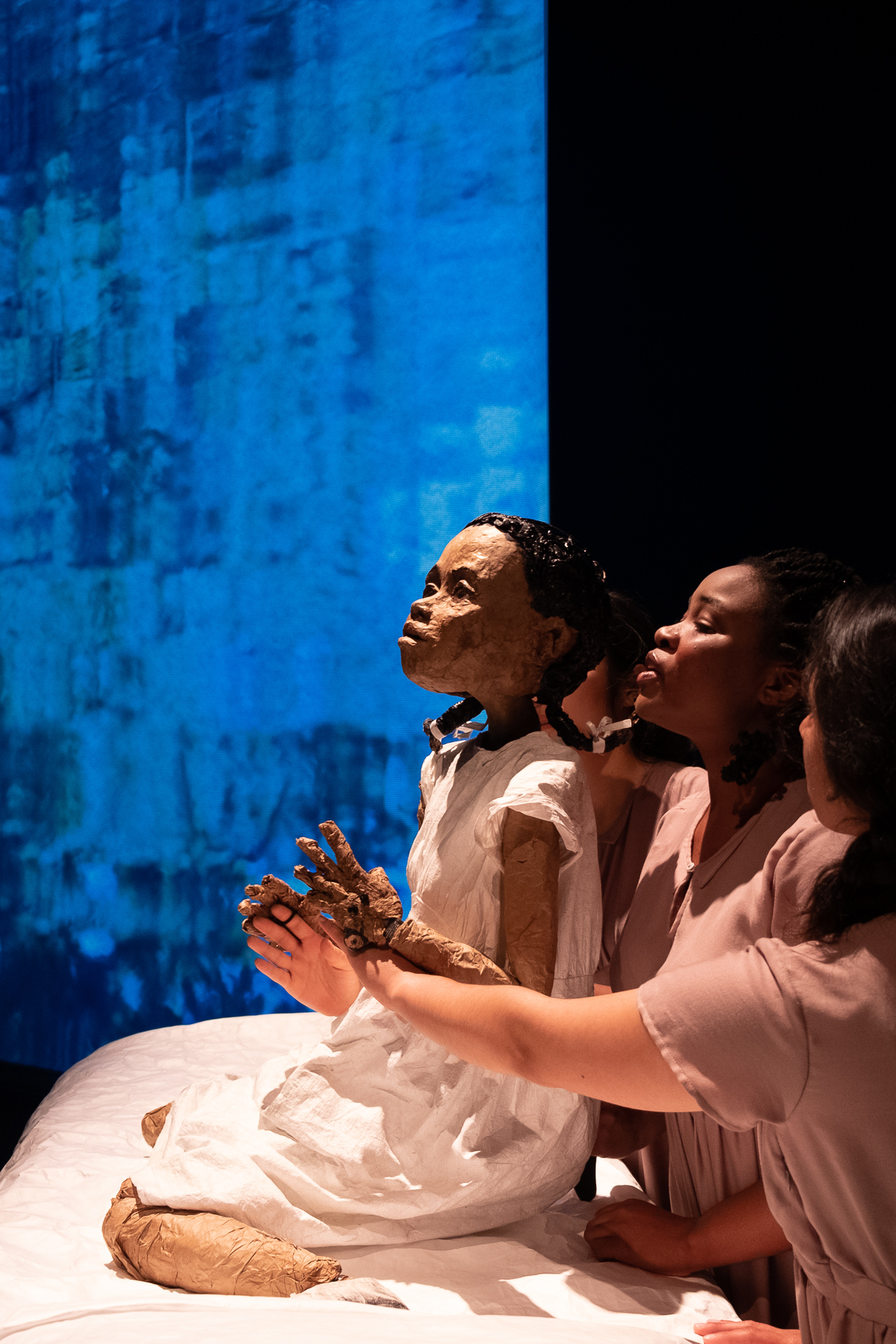
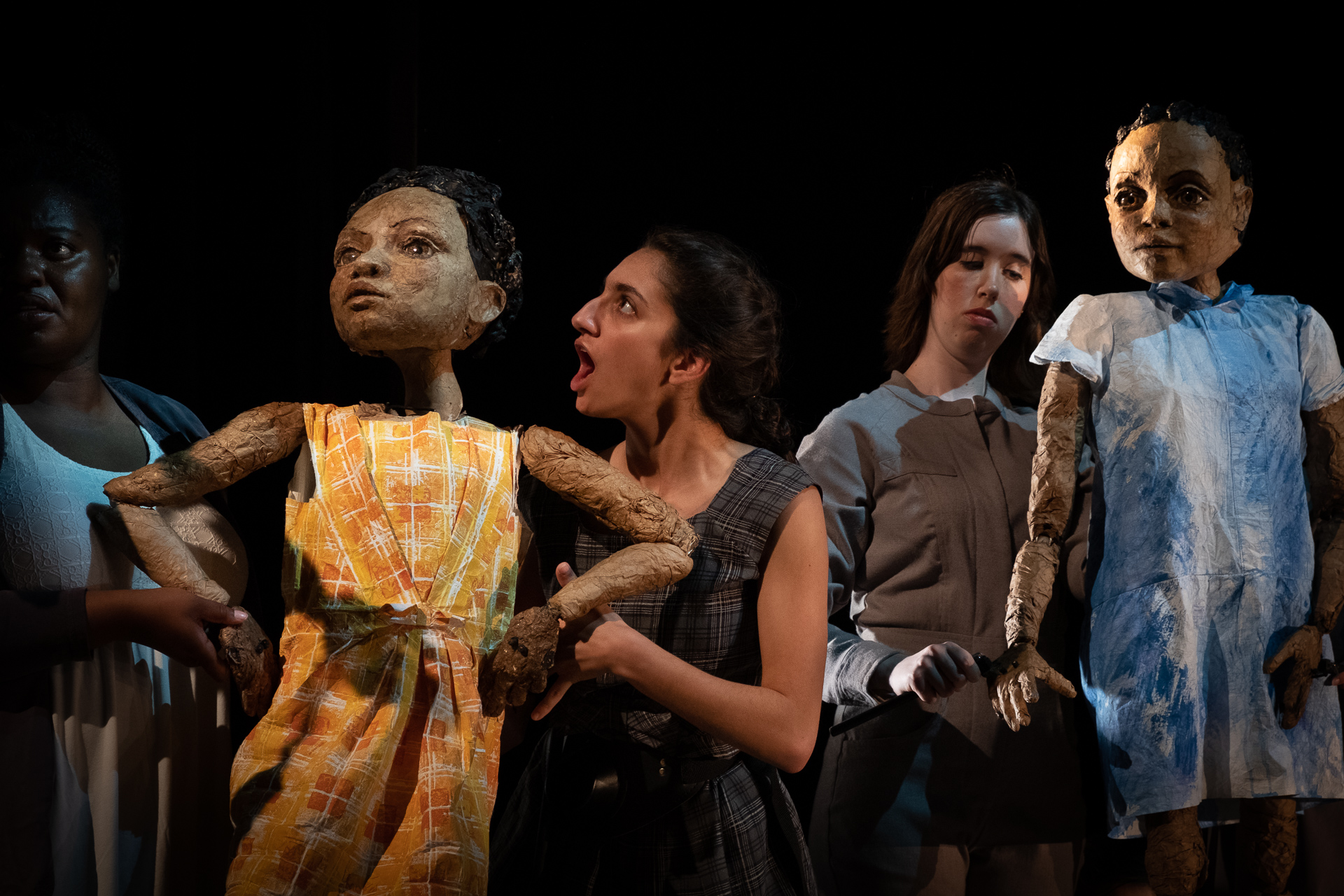
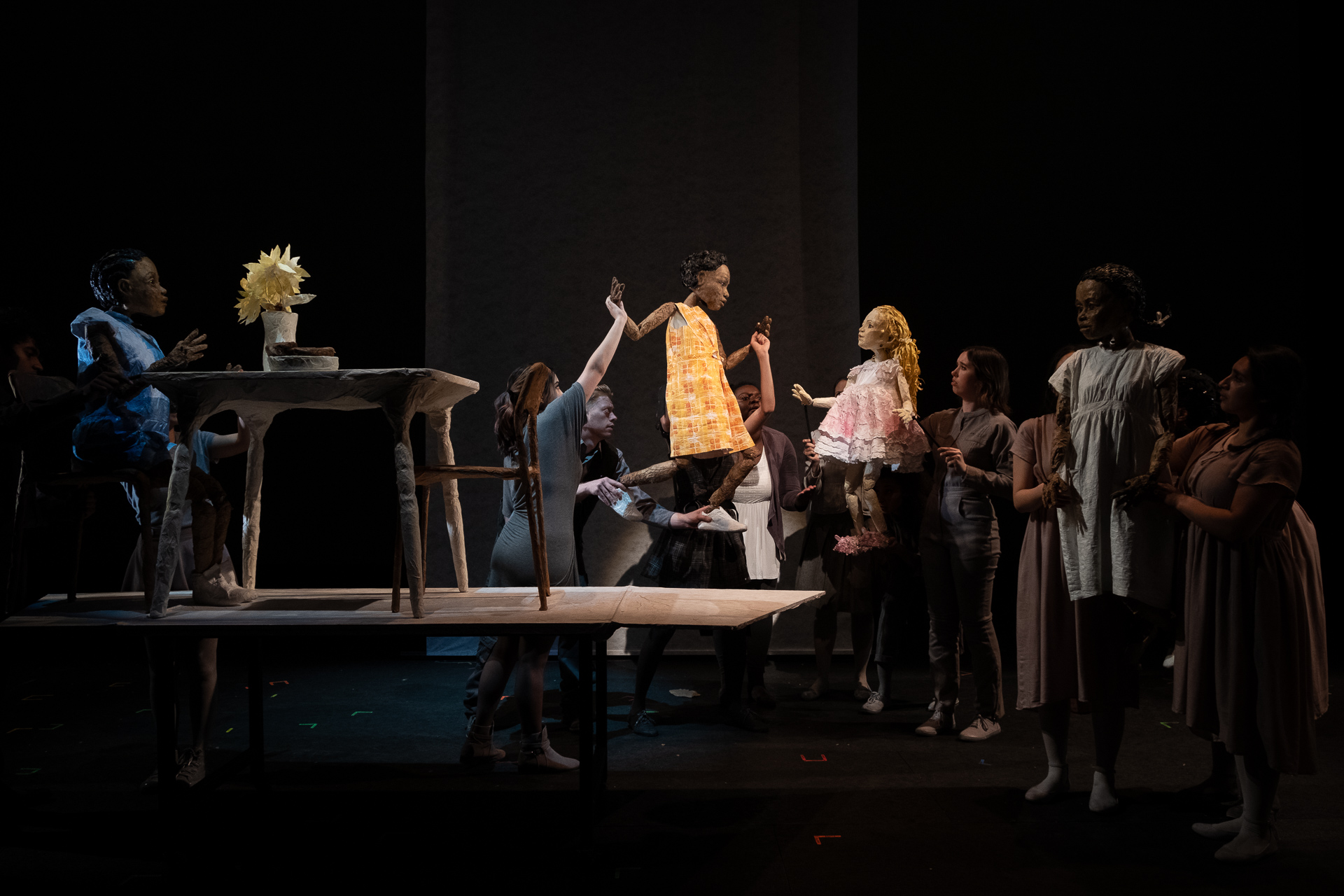
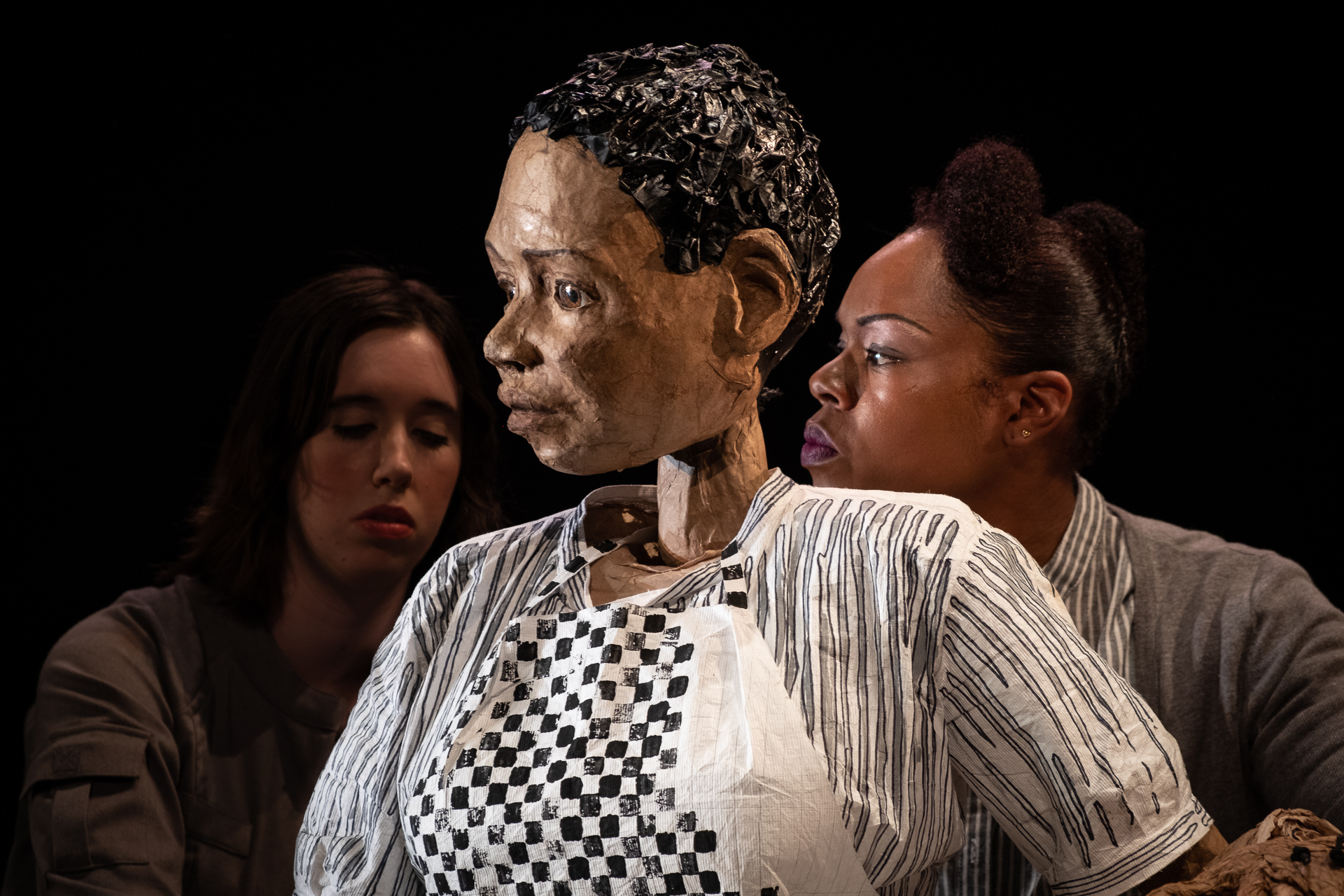
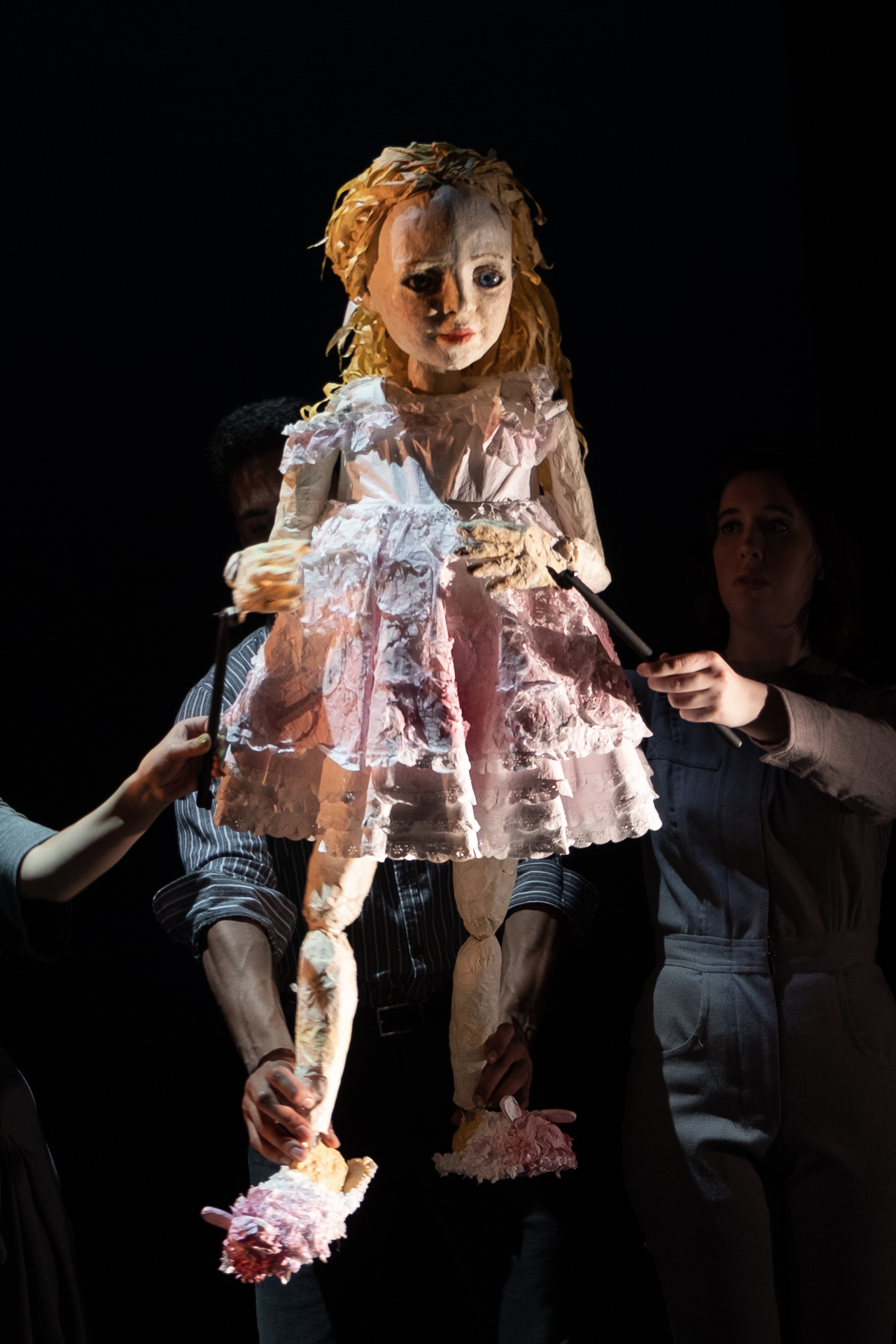
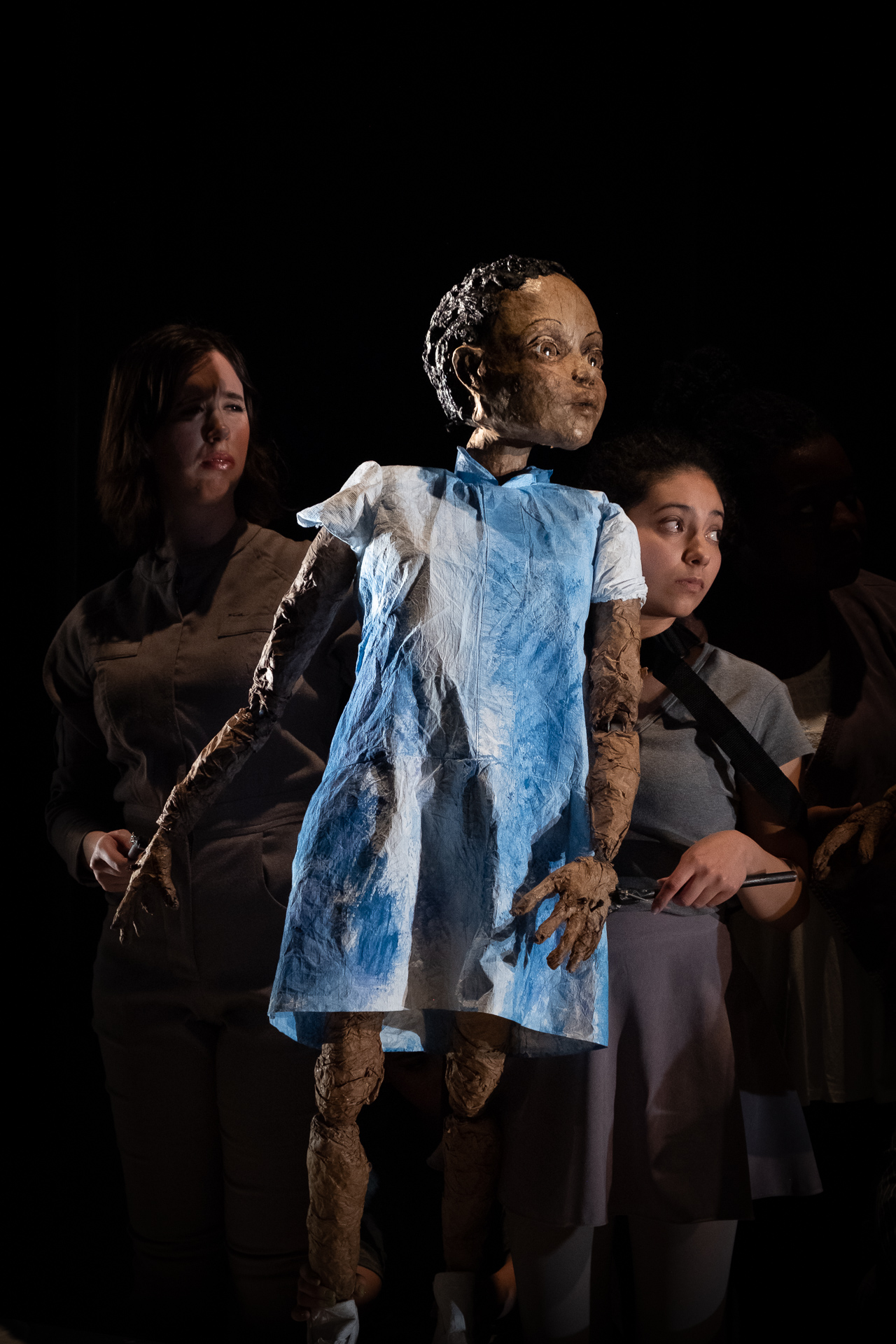
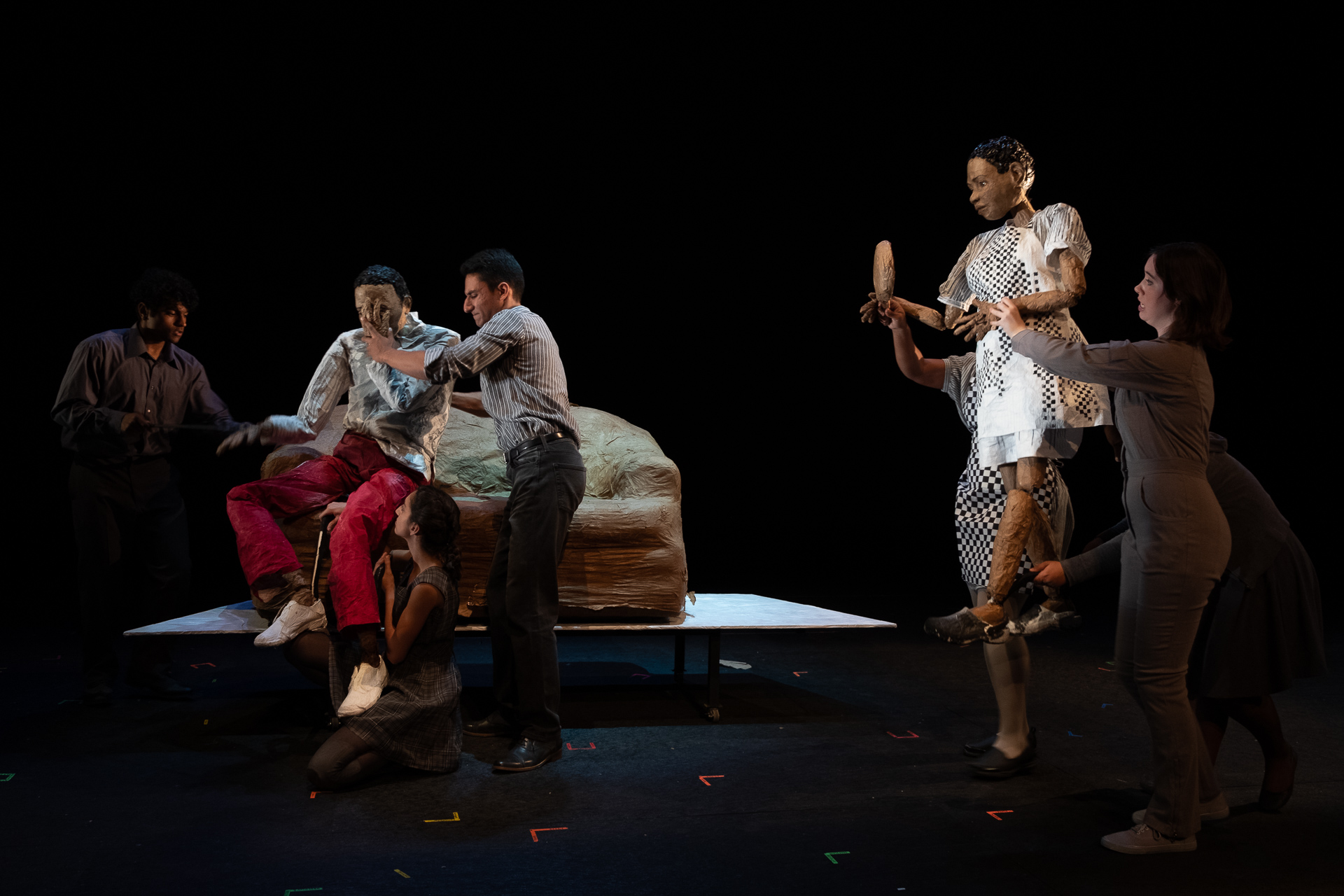
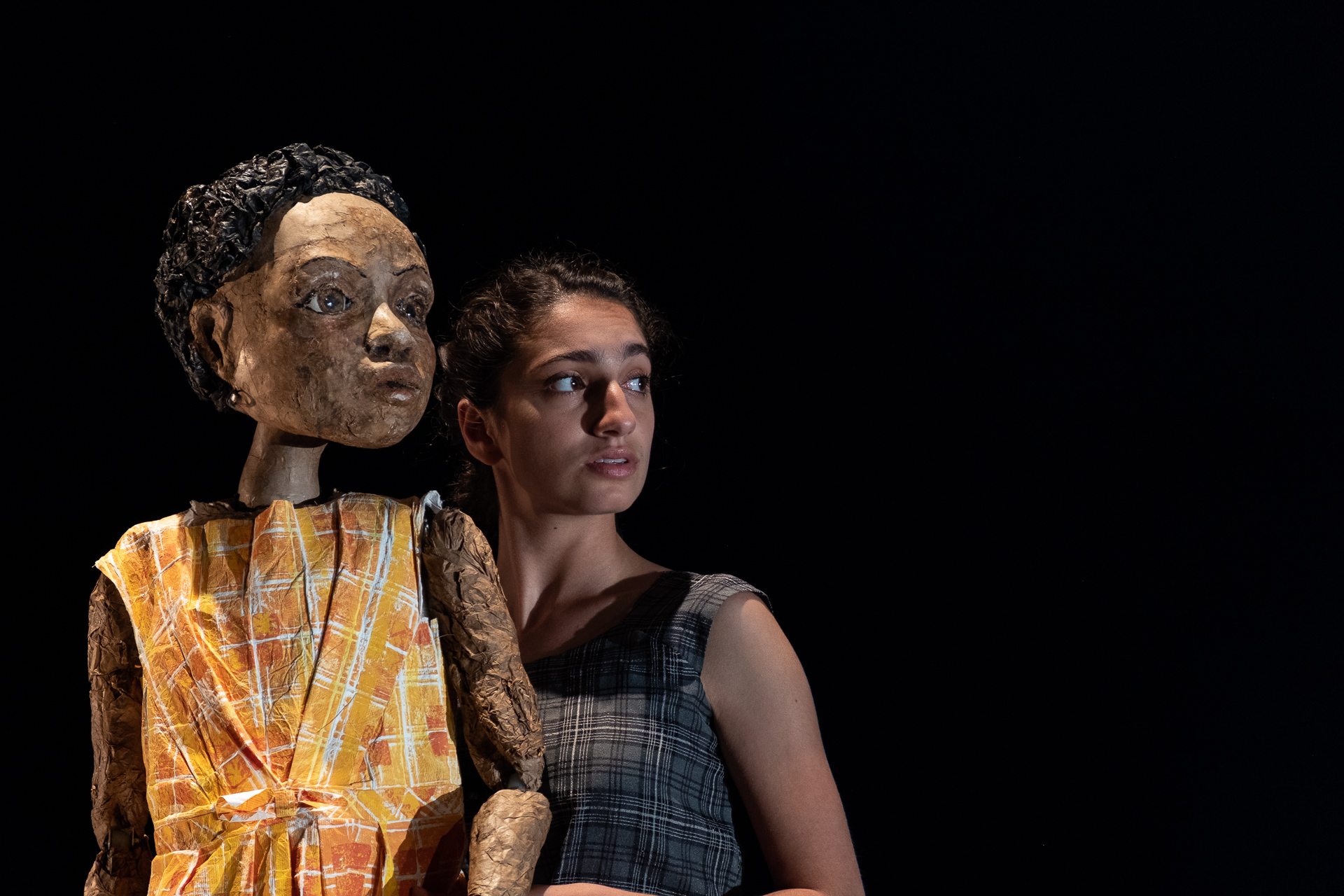
Credits
The Bluest Eye adapted by Lydia Diamond
(from the novel The Bluest Eye by Toni Morrison)
Co- directed by Margaret Lauren Kemp and Janni Younge
Puppets by Janni Younge
University of California, Davis 2018
